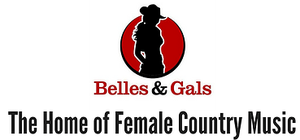Melanie Meriney’s ‘Notes From Nashville’ #5 – Music Resume Building
This month, I want to talk about resumé building in the music industry. When you were in school, the professor might have made you draft a resumé to present to future employers. Elements on this document included your GPA, your test scores, your work experience, your relevant skills, community service, and references. You knew exactly how to get an interview, were given tips on how to answer questions, and were clear on the type of job you’d be accepting (and likely even knew the time range when you could expect to get a call back). For that job, even if you got rejected from the first company, you could apply to the next one and, given appropriate work experience and education, reasonably expect to work there. There was a defining path that led you to your goal, as simple as A + B = C. I’m not saying the steps weren’t challenging or that you didn’t put in enormous amounts of time and effort to make sure you stood above the rest. I’m saying, the path was most likely clear. If you want to be a doctor, you go to medical school. If you pass, you become a doctor.
Music is different. Everyone has an idea of what it takes to get that dream job, but nobody can tell you for sure, because it’s about so much more than having the right stuff on your resumé and having appropriate experience. The sheer number of outliers negates the term “outlier”. Think you need a million followers? There’s a girl with a major record deal and 1000 fans on social media. Think you need to have years of touring experience? A 17 year old wins a game show and gets placed on the biggest tour of the year. Think you need to be an incredible singer and songwriter? For every handful of talented artists, there’s one who leaves you wondering how they got a label to even look their way. Some people come to Nashville and spend twenty years honing their craft and building relationships. For others, success is seemingly instant.

If you work hard enough and are lucky enough to get the “job”, the struggle is still real. Maybe the timing is not right. Maybe you can’t get any songs cut. Maybe your first single flops. Maybe you do really well, but not quite well enough. Maybe you get stuck in the middle of a personal tiff between two execs and become collateral damage. You wear success precariously, as if at any moment, it can be taken away. You cash checks deliberately, not knowing if you will get another one (or you blow it on alcohol, because YOLO, we’re gonna end up broke either way).
The one consistent and slightly ironic factor is that the music business is about personal relationships. It’s just as much personal as it is business. Without a team of people working for your success, rooting for you, and waving your flag, you are just a kid with a cool dream. The most important part of our resumé is the people we choose to work with, associate with, and surround ourselves with. Favors are cashed in by people who came up together in the industry twenty years ago. Collaborations are ruined by long existing grudges and rivalries. The truth you come to realize is that the music business is a really small town. Even if you don’t mean it to, your history is being recorded for better or worse. It takes a special type of personality to thrive and play the game well. When it comes down to it, we’re all gamblers with everything and simultaneously nothing to lose.
To cope, you become an optimistic skeptic. You wake up each morning to work and beat out the competition that is more talented and connected than you. You succeed because you don’t give yourself another option. You take the good and the bad with a healthy grain of salt and pray that by the time you’re 40, you aren’t homeless and hungry. Here’s to the path we’ve chosen. Cheers! 😉





This is so go and insightful
Thank you
Wow. How true and so well written. You go girl